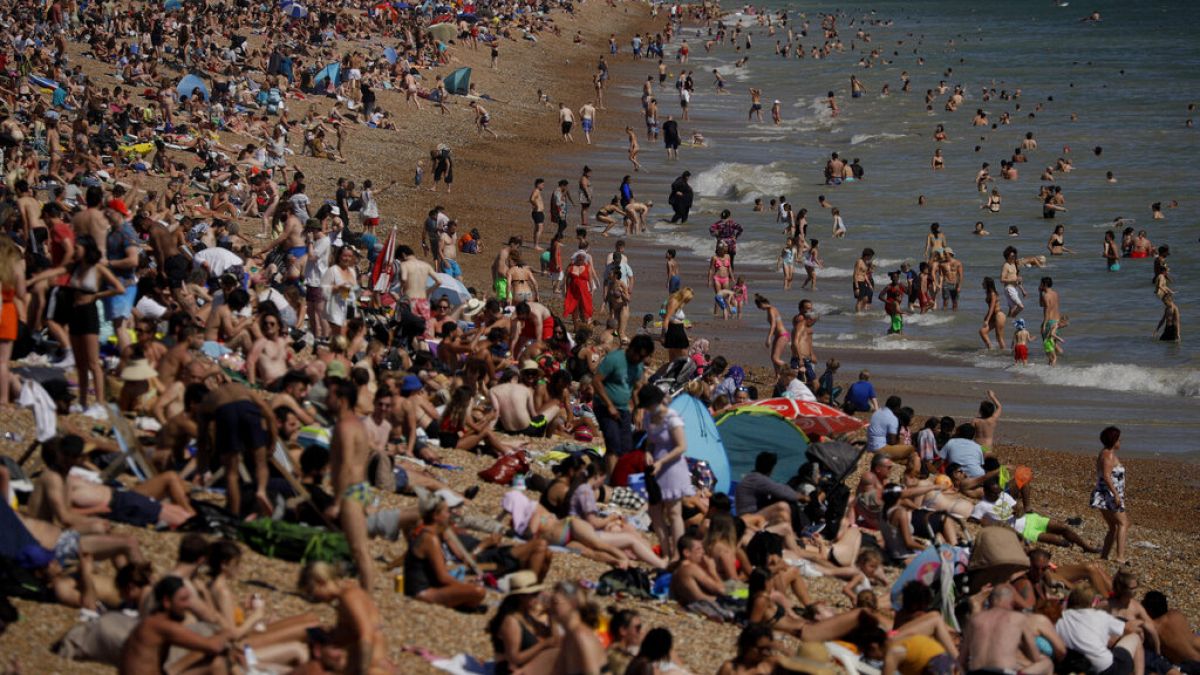The question comes after a makeshift rave in Brussels raised eyebrows in Belgium.
Lockdowns are being loosened all over Europe. People are feeling freer. But are they forgetting the very real danger that COVID-19 poses to society?
On Saturday night, after a rule-respecting dinner at a restaurant near the Flagey Lakes in Brussels, a couple of friends and I decided that a stroll towards Place Flagey would be a welcome constitutional to burn off the steaks we had just eaten. But little did we know what we would witness.
A busy square, with young people sat around in groups swiftly turned into what can only be described as an impromptu rave around a single speaker pulsing out techno music on the shoulders of a couple of students. As the music got louder, the crowd drew in, and the atmosphere became electric.
Belgian media reckon there were around 500 people involved in the makeshift rave.
I won’t lie to you and say that the scene of a load of people dancing wasn’t an attractive sight after the months of sitting on the sofa. But it was also terrifying. That day, 74 people had contracted the new coronavirus in Belgium and two people had died, according to The Brussels Times.
The Belgian rules state that from July 1, gatherings of 50 people will be allowed. You can see from that video that hundreds of people were dancing together, with no masks, and certainly not respecting the 1.5-metre social distancing rule.
Now, this is actually not a new phenomenon. In the UK, illegal raves were already being reported at the start of June: hundreds of people flouting the lockdown rules to have a party. Similarly, this month boat parties in Berlin were risking further spreading the virus. France’s Fête de la Musique was also celebrated with parties that certainly weren’t abiding by the rules.
So, it begs the question, can Europeans be trusted to follow the rules of deconfinement?
As we told you yesterday, the UK has announced that bars in England will open from July 4 and all eyes will be on whether the rules are followed. In the US, there have been many reports of lockdown breaches - whether that be from protests for racial equality or from people who believe the lockdowns are unconstitutional. Protesters even stormed state capitols with weapons.
Now, I used a bit of artistic licence when I called the impromptu party in Brussels the Second Wave Rave but perhaps that’s what it’ll end up being. A huge spike in cases, like those seen this week in Germany, could result in widespread lockdowns being imposed across the continent again. Are these young people being totally reckless or just doing some much-needed blowing off of adolescent steam built up over months at home?
In Germany and Denmark, there have been drive-in events, put on to allow people who feel they cannot help themselves from partying. As far back as May, around 500 people turned up to “drive-in raves” in the northern German town of Schüttorf and the Danish town of Aarhus to party in their cars.
One inescapable aspect of this is the criticism the Black Lives Matter protesters received when they took to the streets of Europe on June 7. I was at the demonstration in Brussels and, while it is hard to claim that social distancing was being upheld, the crowd all had masks on. There was, however, an awareness that COVID-19 was still a threat and those demonstrating were broadly criticised for holding those demonstrations during a pandemic; condemned for risking the progress made in the fight against the coronavirus.
Reading the responses to my videos on social media has clearly shown that those protesters feel exasperated by the fact that the world hasn’t been as outspoken about videos of white youngsters partying around a speaker as it was about black people taking to the streets to fight systemic racism.
Intriguing (for me at least) was the difference between public and private responses. On Twitter, people were quoting my tweet in outrage over a perceived lack of respect for the sacrifices being made in fighting the virus. Direct messages to my Instagram stories were totally different, though. People celebrated a return to freedom and young people having fun, living their lives and getting things back to normality.
Frankly, I got out of there pretty quickly. However, as a mobile journalist, I couldn’t help but video the crowd following the speaker across Place Flagey and filming the people going wild to the same song played on repeat. Many people have questioned why the police didn’t shut it down sooner. Turns out the whole thing lasted a maximum of an hour.
As lockdowns loosen and people feel their freedoms return, the question is; will we see more of this? Will the second wave we all fear come from Second Wave Raves?
Jack Parrock is our correspondent in Brussels.
